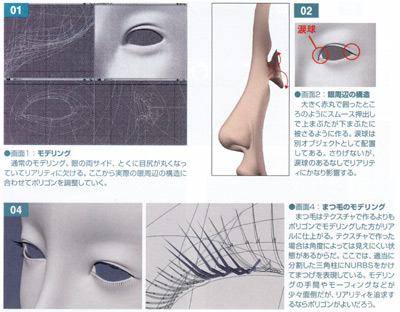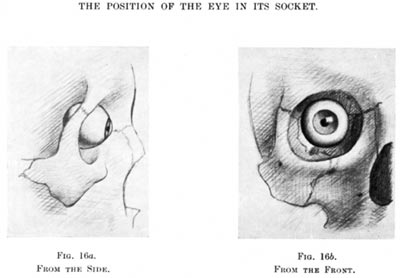Shocking surveillance video has revealed a direct link between manga and crime, and FujiTV brings us the evidence. This short 6 minute video, in Japanese with English subtitles, shows these manga criminals in action, trafficking in their illegal comics, as well as the efforts of the police and decent citizens to eliminate this menace.
This shaky surveillance video shows the crime in progress, as the manga thieves shoplift stacks of expensive comics from bookstores. The narrator asserts that the bookstores lose 1% to 2% of their stock to shoplifting, representing an annual loss to each store of 2.1 million yen (about $17,250).
Suddenly, store security chases after a band of three manga raiders. The camera dashes and darts forward jerkily, and the faces of the thieves are masked with a video effect, since they are minors. The 3 youths are interrogated by the store manager, and they cough up their loot, but give unconvincing alibis. A burly policeman bursts upon the scene and and is determined to teach those bakamono kids a lesson. They are forced to write a letter of apology to their parents, since they have shamed their family name with such a petty larceny. This will be a black mark upon their permanent record that will follow them for the rest of their lives. Still, their apologies are unconvincing. The band of thieves admits they were strictly in it for the money, they intended to fence their stolen goods.
And here is where the real tragedy of the crime lies. Jr. High and High School children across Japan are learning that the bookstores are easy targets. I myself have witnessed bold teenage children swiping comics at bookstores, it is a fairly common sight. These poor innocent children are being corrupted by the manbiki shakai (shoplifting mindset) that will surely lead them to greater crimes and a life of degeneracy. And such a risk for such a tiny return. That annoying woman from Mesamashi TV appears, showing us how to turn the illegal loot into cash yen at a used manga store. The clerk gives her 16% of the cover price. Then we learn how thieves steal the manga that will have the highest resale value, and how to get lists of the most sought-after manga, and where to sell them for the most profit. I never have understood this particular aspect of Japanese investigative journalism. In the effort to expose the crime, they demonstrate how to commit the crime, and in the process have taught thousands of impressionble youths exactly how and where to shoplift and fence their stolen goods. Oh well, at least their intentions were good.
The expose closes with the stern commentators expressing their concern that this evil crime wave represents the downfall of orderly society. They compare Japan's reputation as a crimeless society against the United States, where it is said to be a shoplifter's heaven and people will steal anything that is not secured. How could Japan have come to resemble the lawless Americans? It is an evil influence that all right-thinking citizens should resist. This manga crime wave shows no sign of ending, but somehow, it must end.
|
|
|
|
Can't see BlogTV?
Click Here. |
|
This shaky surveillance video shows the crime in progress, as the manga thieves shoplift stacks of expensive comics from bookstores. The narrator asserts that the bookstores lose 1% to 2% of their stock to shoplifting, representing an annual loss to each store of 2.1 million yen (about $17,250).
Suddenly, store security chases after a band of three manga raiders. The camera dashes and darts forward jerkily, and the faces of the thieves are masked with a video effect, since they are minors. The 3 youths are interrogated by the store manager, and they cough up their loot, but give unconvincing alibis. A burly policeman bursts upon the scene and and is determined to teach those bakamono kids a lesson. They are forced to write a letter of apology to their parents, since they have shamed their family name with such a petty larceny. This will be a black mark upon their permanent record that will follow them for the rest of their lives. Still, their apologies are unconvincing. The band of thieves admits they were strictly in it for the money, they intended to fence their stolen goods.
And here is where the real tragedy of the crime lies. Jr. High and High School children across Japan are learning that the bookstores are easy targets. I myself have witnessed bold teenage children swiping comics at bookstores, it is a fairly common sight. These poor innocent children are being corrupted by the manbiki shakai (shoplifting mindset) that will surely lead them to greater crimes and a life of degeneracy. And such a risk for such a tiny return. That annoying woman from Mesamashi TV appears, showing us how to turn the illegal loot into cash yen at a used manga store. The clerk gives her 16% of the cover price. Then we learn how thieves steal the manga that will have the highest resale value, and how to get lists of the most sought-after manga, and where to sell them for the most profit. I never have understood this particular aspect of Japanese investigative journalism. In the effort to expose the crime, they demonstrate how to commit the crime, and in the process have taught thousands of impressionble youths exactly how and where to shoplift and fence their stolen goods. Oh well, at least their intentions were good.
The expose closes with the stern commentators expressing their concern that this evil crime wave represents the downfall of orderly society. They compare Japan's reputation as a crimeless society against the United States, where it is said to be a shoplifter's heaven and people will steal anything that is not secured. How could Japan have come to resemble the lawless Americans? It is an evil influence that all right-thinking citizens should resist. This manga crime wave shows no sign of ending, but somehow, it must end.



